Video about India AIS Certification
The process of certification in India can be confusing and frustrating to figure out. Manufacturers usually assign their quality engineers or officers with the daunting task of getting their products certified. Unfortunately, there are many different authorities and testing labs for different product groups, and often opinions among different labs differ. Added to that the lack of up-to-date information on government websites can make the certification process seem overwhelming.
MPR China Certification GmbH / China Certification Corporation released a video which clearly illustrates the process of the Indian AIS certification, breaking it down to manageable steps.
The two-minute video gives a broad over-view of the necessary steps involved in getting
AIS certification. The video points out specific areas of importance including application preparation, need for test samples to be sent and cleared through customs in India, and the importance of consistency between the application, test reports, certificate and product marking.
If you have any questions regarding any aspect of AIS Certification, please don’t hesitate to contact us. We can discuss your specific concerns and offer personalized solutions. Contact us by phone (UK: +44 2071931135, Europe: +49-69-2713769150, US: +1 773 654-2673) or email us with any questions you may have.
Huawei works with Audi and Toyota on self-driving vehicles
The telecommunications giant Huawei is working on self-driving vehicles in collaboration with several automobile manufacturers, including Audi, Toyota and Chinese companies, and expects to start series production of these vehicles in 2021. Dang Wenshuan, chairman of the corporate strategy department, said in an interview with the Financial Times Huawei developed the software and AI (artificial intelligence) together with Audi and Chinese manufacturers such as GAC, Beijing New Energy Automobile and Changan Automobile. The first production-ready vehicle can be delivered to customers in China and worldwide, including Europe, between 2021 and 2022.
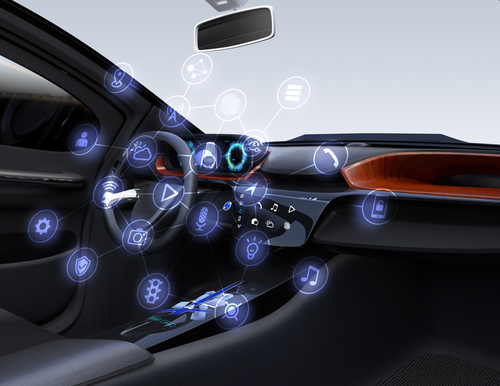
Huawei is under pressure to expand its product range after being blacklisted by the US for suspected safety risks due to its proximity to the Chinese government. Nevertheless, Dang is confident that China will be at the forefront of global driverless vehicle development and that one of Huawei’s Chinese partners will present the first roadworthy car. Numerous Chinese Internet companies such as Alibaba, Tencent and Baidu are also developing autonomous vehicles with various partners. In July last year, Huawei and Audi signed a MOU for strategic cooperation in the area of connected vehicles.
The cooperation includes the ongoing development of assistance systems and digital services in the automotive sector. In order to use these services, the vehicles require a fast and stable Internet connection at all times. According to Huawei, intensive research and development is required to expand this network infrastructure. Alongside Huawei and the Chinese government, Audi is the first foreign automobile manufacturer to be allowed to participate in testing the LTE-V standard on the roads of the Chinese metropolis of Wuxi in 2017. The LTE-V standard is tailored to the communication of vehicles with the existing infrastructure. The driver is provided with real-time traffic information from sensors in traffic lights and video cameras at intersections, and autonomous driving is also made possible with this data. The technology for the infrastructure and the corresponding vehicles for autonomous driving will be a growing market in the coming years. Benefit from it and export your products to China. You will need the obligatory China Compulsory Certification (CCC), for which we will be happy to advise you.
For more information on how CCC certification may affect your company, or for more information about CCC certification in general, the process, and the associated costs, please visit our website and our News Section where you will find current updates twice a week.
Please do not hesitate to contact us for further details and consultation. You can contact us via e-mail, or call us (UK: +44 2071931135, Rest of Europe: +49 69 2713769150, US: +1 773 654-2673).
You can also check out our free CCC-Brochure, which can be downloaded right here as a PDF file or you consult our book (in English) “A Brief Guide to CCC: China Compulsory Certification”, which can be found directly here on Amazon.
Automotive and supplier fair Indian Auto Expo 2020
After a successful course in 2018, the Indian Auto Expo 2020 will take place in New Delhi from 6 to 9 February 2020. The exhibition is thematically divided into two areas, vehicles and components. The total exhibition area in 2018 was around 60,000 square metres with 850 exhibitors from India and 360 international companies. There were 115,000 visitors from 67 countries. A special feature of Indian Auto Expo are pavilions on special topics and countries, Canada, China, France, Germany, Japan, South Korea, Taiwan and United Kingdom presented their companies and services as well as the theme pavilions on safe driving, ball bearings and bearings in general and workshop equipment.
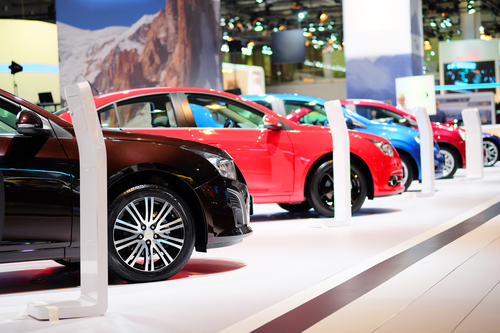
The fair is organised by three interest groups: The Automotive Component Manufacturers Association of India (ACMA) represents 800 suppliers from the automotive sector, accounting for more than 90 percent of the industry’s total sales. In 2017, India’s automotive supply industry recorded sales of $43.55 billion and exports of $10.9 billion. Total growth was 14.3 percent and exports 3.1 percent. The ACMA represents the interests of its members both domestically and internationally, with currently more than 160 countries to which the products are exported. The Confederation of Indian Industry (CII) is a private and non-profit association that has existed since 1985. It has 9000 members and has 66 branches and 9 competence centres in India. There are also 10 offices abroad and partnerships with 355 similarly oriented organisations in 125 countries. The Society of Indian Automotive Manufacturers (SIMA) represents vehicle and engine manufacturers in India. It is related to the sustainable development of the industry and advises its members about environmental protection and road safety issues.
Indian Auto Expo 2020 is officially accredited by the International Organization of Automobile Manufacturers (OICA) and will take place from February 6 to 9, 2020 at the Pragati Maidan Exhibition Center in New Delhi. Highlights include product presentations, vehicle premieres and a supporting programme with conferences and related events. The automotive market in India is characterised by dynamic growth. The export of products to India, especially vehicles and components, often requires mandatory India certification according to the Automotive Industry Standard (AIS). We will be happy to provide you with comprehensive advice on AIS certification for India.
Changes in Chinese CCC regulations affect companies that produce solvent-based wood coatings
Since last year, a number of adjustments have been made to China’s production licensing policy. The CCC certification regulations were also influenced. The China Quality Certification Center (CQC) has previously revised the “Implementation Regulations for Compulsory Product Certifications – Solvent-Based Wood Coatings”. They are based on the “Implementing Provisions for Mandatory Product Certification – Decorative Products” (CNCA-C21-01: 2014) and were revised on August 30, 2018. The most important changes include:
1. Revision of the application documents
2. Revision of the quantity and method of sampling
3. Revision of the sampling principle and selection
4. Revision of the logo and its usage requirements
5. Revision of fee requirements

Companies producing solvent-based wood coatings still need to follow the basic certification mode of compulsory product certification, including the inspection of the company’s quality assurance capability, product consistency, product testing and annual follow-up inspection after initial certification as stated in the relevant Implementation Rules.
If you have any questions about solvent-based wood coating products, we would be happy to assist you.
For more information on how CCC certification may affect your company, or for more information about CCC certification in general, the process, and the associated costs, please visit our website and our News Section where you will find current updates twice a week.
Please do not hesitate to contact us for further details and consultation. You can contact us via e-mail, or call us (UK: +44 2071931135, Rest of Europe: +49 69 2713769150, US: +1 773 654-2673).
You can also check out our free CCC-Brochure, which can be downloaded right here as a PDF file or you consult our book (in English) “A Brief Guide to CCC: China Compulsory Certification”, which can be found directly hier on Amazon.
The market for luxury vehicles in India is growing steadily
The German manufacturer Audi presented the luxury electric SUV e-Tron in India at the end of June. The electric vehicle with long-distance ability will be available from November 2019 for the equivalent of 215,000 US dollars. The Audi e-Tron will be manufactured in Brussels, Belgium, and imported to India as a fully assembled vehicle (completely built unit, CBU). It is Audi’s first electric-only model for the Indian market. At the moment the Audi e-Tron has no serious competitors, internationally the Tesla Model X comes close to it. Apart from the e-Tron, insiders expect the A8 and Q8 to be launched on the Indian market soon. Audi India already announced a price reduction for its A3 in June. This makes the compact sedan one of the most attractively priced luxury vehicles and Audi hopes to gain market share from the long-standing market leader Mercedes-Benz.
Volvo has plans for the assembly of hybrid and electric vehicles in India and plans to increase its market share in the luxury segment to 10 percent by 2020. Currently, models of the XC60, XC90 and S90 series are assembled on site in India and account for 60 percent of Volvo vehicles sold. According to Charles Frump, Managing Director of Volvo Car India, it is also possible that the third generation of the S60, which is to be presented in India in 2020, will be completely manufactured there.
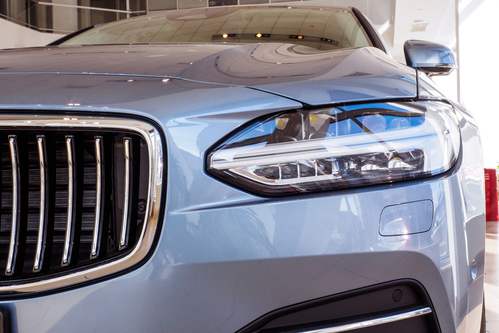
In May 2019, Jaguar Land Rover India introduced the locally produced Range Rover Velar. The SUV will be available in only one outfit and buyers will have the choice of petrol or diesel drive. In a press release, JLR India Managing Director Suri said that the production of the Velar in India has reduced costs by 15 to 20 percent compared to the imported model, and a competitive advantage can be gained in the luxury SUV segment. Other JLR models available in India include the Discovery, Evoque and Range Rover.
Last year BMW sold more than 10,000 vehicles in India for the first time. Together with the MINI brand, the company reported growth of 13 percent compared to 2017. In 2018, sales of vehicles from the MINI subsidiary even increased by an impressive 66 percent. The Italian sports car manufacturer Lamborghini sold 45 vehicles in India in 2018 and expects an increase of 60 percent in the current year.
Sales figures for two-wheelers in the premium segment exceeded the sum of 1 million units for the first time in the 2018 financial year. Renowned manufacturers such as Harley-Davidson and Suzuki are planning models for the Indian market, and newcomers such as the Chinese CF Moto and the Indian Revolt startup are confident about market developments. You are also a foreign automotive or supplier company and would like to export your products to India? Then, in most cases, a mandatory India certification according to the Automotive Industry Standard (AIS) is required. We will be happy to provide you with comprehensive advice on AIS certification for India.
CCC Certification for Explosion Protection Products in China
According to an announcement by the Chinese market regulation authority SAMR (State Administration for Market Regulation) CCC certification will become mandatory for explosion protection products. Starting October 1, 2019 these products can apply for China CCC certification and from October 1, 2020 CCC will become mandatory for these products. Previously, all products that were explicitly used in an explosion protection environment were excluded from the CCC catalogue. Along with this announcement the authority also published the new implementation rule CNCA-C23-01:2019 in which it regulated which products have to be CCC certified in the future.
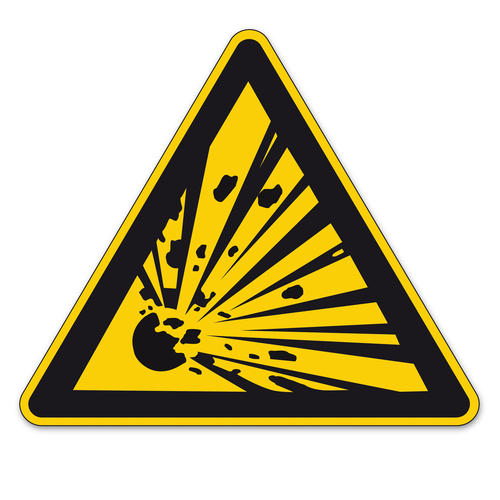
The following explosion protection related products are some that will require CCC:
- Explosion protected motors
- Explosion protected electrical hydraulic pumps
- Energy distributing systems
- Safety switches, explosion control products, explosion protection products
- Products for setting of an explosion
- Converters used in explosion protection areas
- Plug in devices
- Explosion monitoring products
- Climate devices and wind devices
- Heat supplying products
- Components of explosion protection products (casing, cable cover, etc.)
- Measuring devices, instrument panels
- Sensors
- Safety fences
Manufacturers of products affected by this new regulation are advised to get the certification process started in time to make sure to receive the certificates before the October 1, 2020 deadline.
Please note that not all ex-products are covered by the new Implementation Rule. For example, LED lights are not included in this new regulation. For these products excluded from the CCC catalogue it is still possible to convert ATEX certificates to chinese Ex-certificates.
Are you already active in the Chinese market and want to learn more about how the new regulations affect your business or do you want to start exporting your products to China? Then please do not hesitate to contact us. We are happy to advise you on the new regulations in detail and individually for your needs. We also offer original versions of the Chinese regulations as well as translations.
For more information on how CCC certification may affect your company, or for more information about CCC certification in general, the process, and the associated costs, please visit our website and our News Section where you will find current updates twice a week.
Please do not hesitate to contact us for further details and consultation. You can contact us via e-mail, or call us (UK: +44 2071931135, Rest of Europe: +49 69 2713769150, US: +1 773 654-2673).
You can also check out our free CCC-Brochure, which can be downloaded right here as a PDF file or you consult our book (in English) “A Brief Guide to CCC: China Compulsory Certification”, which can be found directly here on Amazon.
New GB standard published for the technical requirements of e-bicycles
The GB17761-2018 (Safety technical specification for electric bicycle) standard was issued on May 15, 2018 and went into full effect on April 15, 2019. In order to ensure the effective implementation of the mandatory product certification implementation rules for electric bicycle products (CNCA-C16-16:2018), the National Certification and Accreditation Administration (CNCA) held the TC12 electric bicycle professional group meeting March 18-19, 2019. On March 25, 2019, “the Technical Resolution on the Interpretation and Implementation of the GB17761-2018 Standard” was issued.

The new requirements of the Technical Resolution are more specific and detailed. Here are some examples:
- Specific requirements are made for the total volume of vacant space inside the bicycle body. The total volume of all vacant spaces inside the bicycle body should not exceed 1500 cubic centimeters (1.5L).
- A specific technical explanation has been added to the design requirements for saddle anti-tampering
- There is a clear requirement for the anti-tampering of the pedal. The cranks on both sides of the electric bicycle should not be removed by hand or using universal tools.
- It is required to submit a description of the anti-tampering design method. When applying for testing and certification, an electric bicycle company needs to submit a description of the anti-tampering design method for the bicycle’s maximum speed, power, voltage, controller, and battery etc.
- When changing the certified product, if only the luggage carrier size, saddle height, luggage carrier height and crank anti-tampering function are changed, the certification body can adopt a simplified method.
- The certified enterprises should immediately check whether the products they have obtained meet the standard requirements, and immediately stop the factory sales for products that do not meet the requirements, and rectify and complete the certification changes within three months.
After the implementation of the “Technical Resolution”, it can effectively promote enterprises to improve production processes and enhance technical strength, improve inspection and testing ability, optimize product structure, improve product quality, and enhance market competitiveness, so as to achieve high quality development of electric bicycles.
We are happy to assist with your China CCC Certification and GB standard update.
For more information on how CCC certification may affect your company, or for more information about CCC certification in general, the process, and the associated costs, please visit our website and our News Section where you will find current updates twice a week.
Please do not hesitate to contact us for further details and consultation. You can contact us via e-mail, or call us (UK: +44 2071931135, Rest of Europe: +49 69 2713769150, US: +1 773 654-2673).
You can also check out our free CCC-Brochure, which can be downloaded right here as a PDF file or you consult our book (in English) “A Brief Guide to CCC: China Compulsory Certification”, which can be found directly here on Amazon.
Fuel cell vehicles on the rise in China
Contrary to the general trend, production and sales figures for fuel cell vehicles in China increased slightly. In the first five months of the year, 553 vehicles were produced, representing an increase of 476 percent. However, it should not be overlooked that this figure is only a fraction of the 380,000 electric cars produced with alternative powertrains.
China’s former science minister Wan Gang said in an interview with Bloomberg that fuel cell vehicles are the future for China’s automotive industry. Gang is also known as the “father” of the introduction of electric vehicles in China and convinced the government two decades ago of the urgency of a shift from combustion to alternative drives. In March 2019, a report by Li Keqiang, Chairman of the People’s Central Government, was published, citing the construction of a hydrogen filling station infrastructure as a key to the country’s further development. It was the first time that the Chinese government has given this technology a significant role.
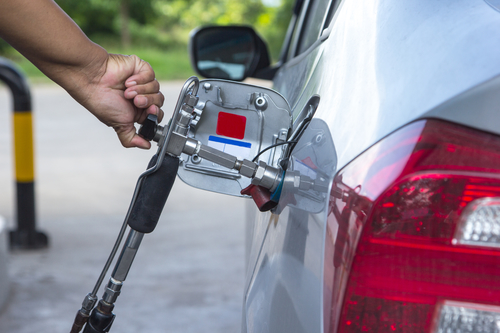
Currently, only four fuel-powered passenger car models are in series production worldwide and 100 buses, most of them for demonstration purposes, are in operation. A lack of infrastructure and low production volumes lead to high costs for vehicles with fuel cells. According to a spokesperson, the city of Shanghai plans to set up a network of 510 hydrogen filling stations by 2020. SAIC Motor, the leading Chinese automobile manufacturer, reportedly opened the world’s largest hydrogen filling station in Shanghai at the beginning of June. Your company can also take advantage of this opportunity in the new market for fuel cells in China. For the export of products in the automotive sector and other industries, one needs the obligatory China Compulsory Certification (CCC), for which we are happy to advise you.
For more information on how CCC certification may affect your company, or for more information about CCC certification in general, the process, and the associated costs, please visit our website and our News Section where you will find current updates twice a week.
Please do not hesitate to contact us for further details and consultation. You can contact us via e-mail, or call us (UK: +44 2071931135, Rest of Europe: +49 69 2713769150, US: +1 773 654-2673).
You can also check out our free CCC-Brochure, which can be downloaded right here as a PDF file or you consult our book (in English) “A Brief Guide to CCC: China Compulsory Certification”, which can be found directly hier on Amazon.
Well-known car manufacturers increase their investments in the Indian automotive market
The Indian automotive market is experiencing massive investment by foreign automotive groups between 2018 and 2022. According to analysts, companies are hoping to increase their sales figures in what is currently the fifth-largest market, which is expected to become the world’s third-largest sales market for new vehicles after China and the USA by 2020. The investments include the expansion of existing production facilities as well as new buildings and a completely new presence in the Indian automotive sector.
Nissan, part of the Renault-Nissan-Mitsubishi alliance, plans to double its existing investments to $2.5 billion over the next five years and aims to increase its market share to five percent by 2022. The Chennai plant’s capacity is expected to grow to 400,000 units over the next few years and eight new vehicle models will launch on the Indian market by 2021. As early as December 2018, Nissan opened its world’s first so-called digital development hub at the Technology Park in Trivandrum.
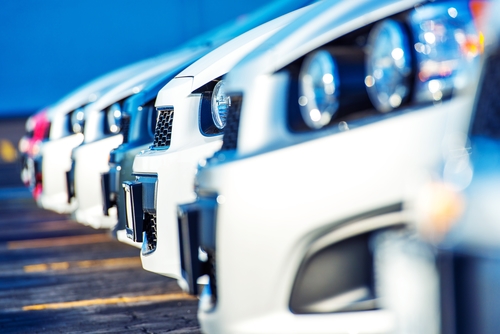
Toyota is investing $165 million in new engine plants and other concrete development projects in India. One billion US dollars will flow from the South Korean car manufacturer Hyundai to the subcontinent by 2020. In February 2019, around USD 1 million was also invested in a new electric vehicle division based in the state of Tamil Nadu. The state-owned Chinese automotive group SAIC has announced investments of 310 million US dollars in India, with business activities scheduled to begin in 2019. In March 2018, SAIC announced through its subsidiary MG Motor India that it would invest USD 775 million over the next six years.
Mercedes-Benz is already the largest luxury car manufacturer and plans to expand the capacity of its Chakan plant to 20,000 units. In addition, two new service centers were opened in New Delhi in March 2019. In the state of Maharashtra, 244 million US dollars are being invested in the expansion of the Chakan plant in the Pune district in cooperation with the state authority for industry and economic development. There is a special economic zone that has developed into a center of the automotive industry. Numerous international manufacturers, including the Volkswagen Group, Hyundai and Indian companies have settled there.
The Japanese Honda Motor Company is planning a third plant in India for the production of hybrid and electric vehicles and is investing their highest sum of 1.31 billion in the country to date. The two-wheeler manufacturer Kinetic and its superbike division, Motoroyale, have plans to build a plant in Supa in the state of Maharashtra for 1.71 million US dollars. Kinetic is also the local distributor for MV Agusta two-wheelers. The export of cars and car parts in many cases requires mandatory India certification according to the Automotive Industry Standard (AIS). We will be happy to provide you with comprehensive advice on AIS certification for India.



